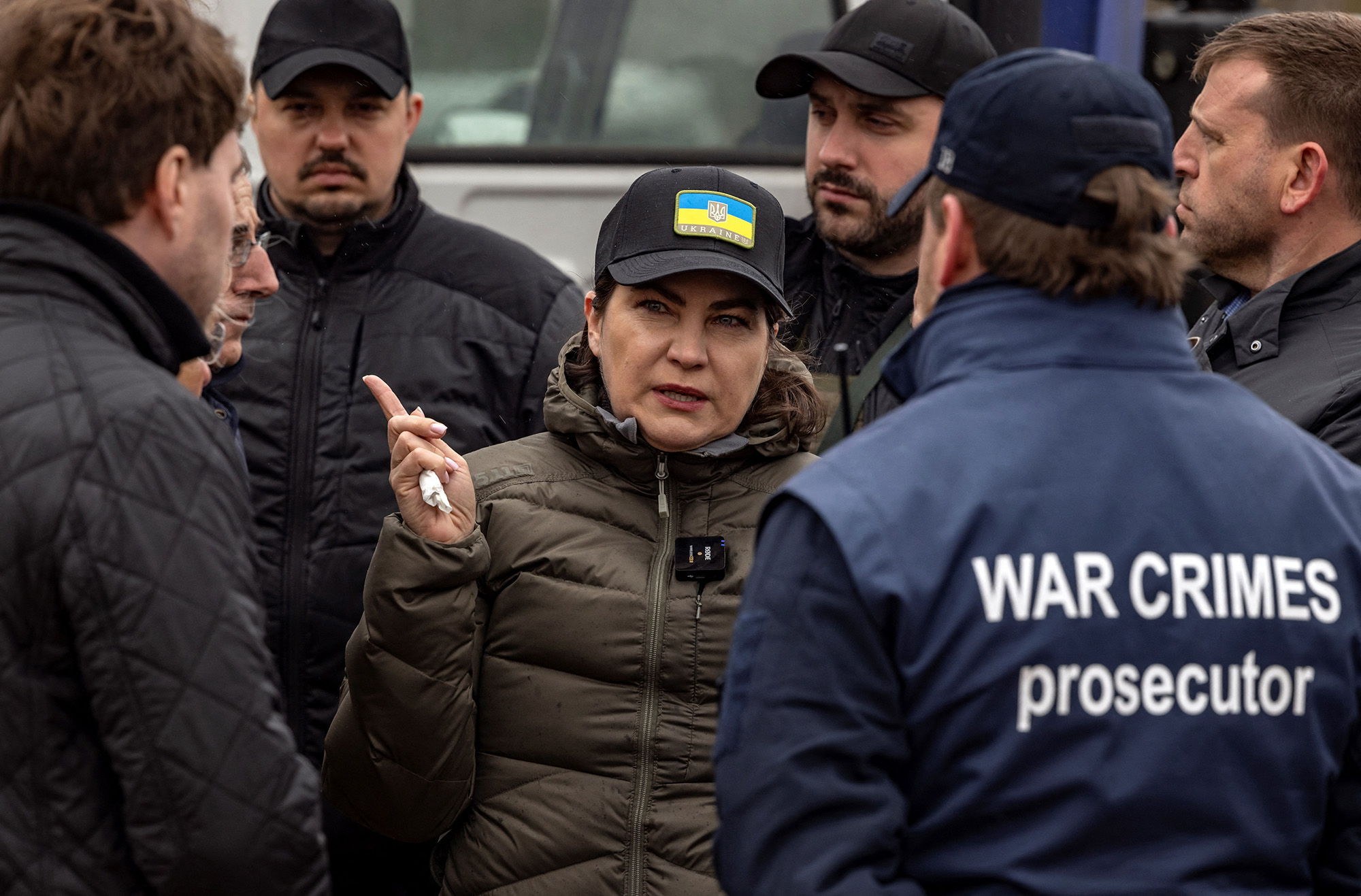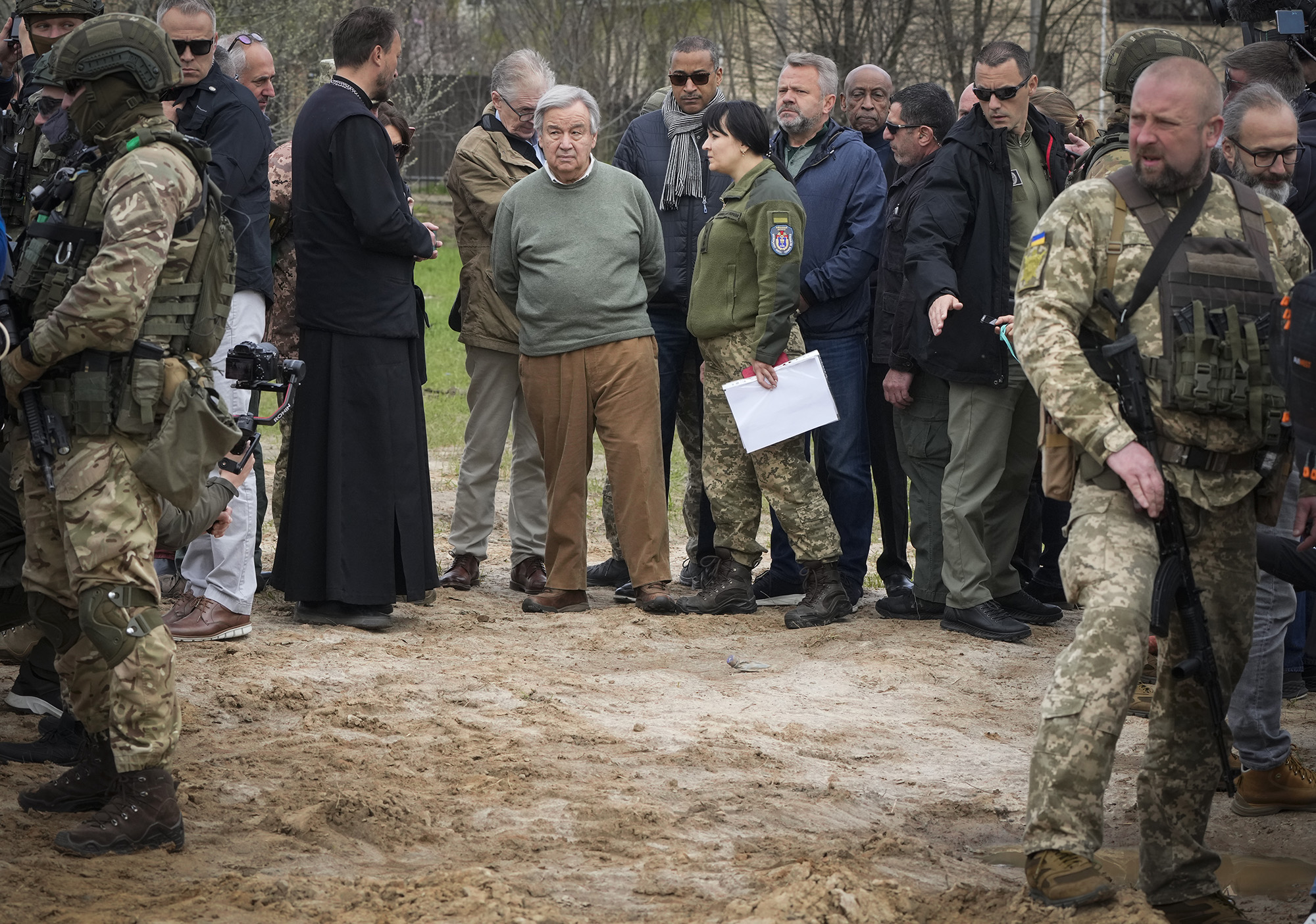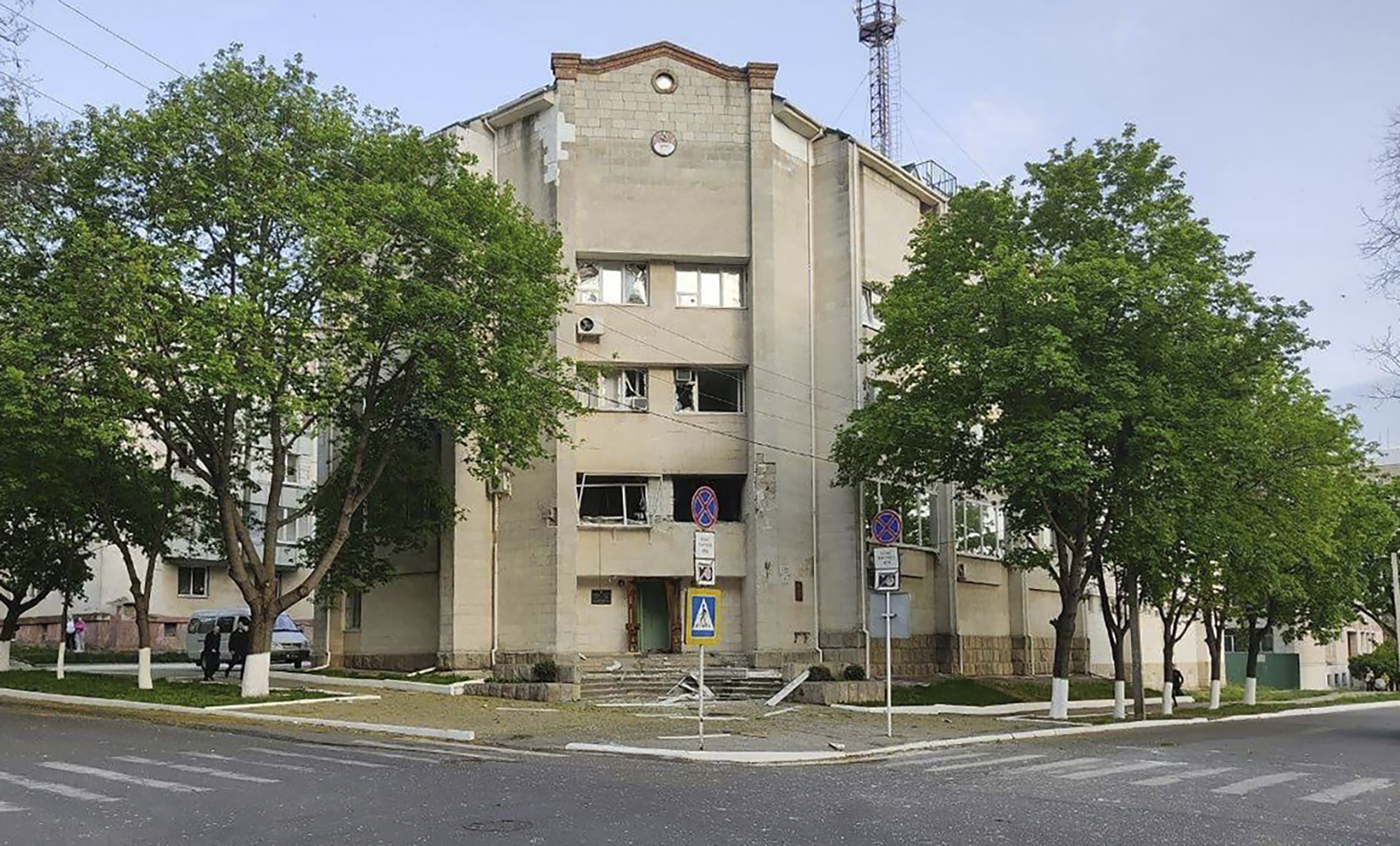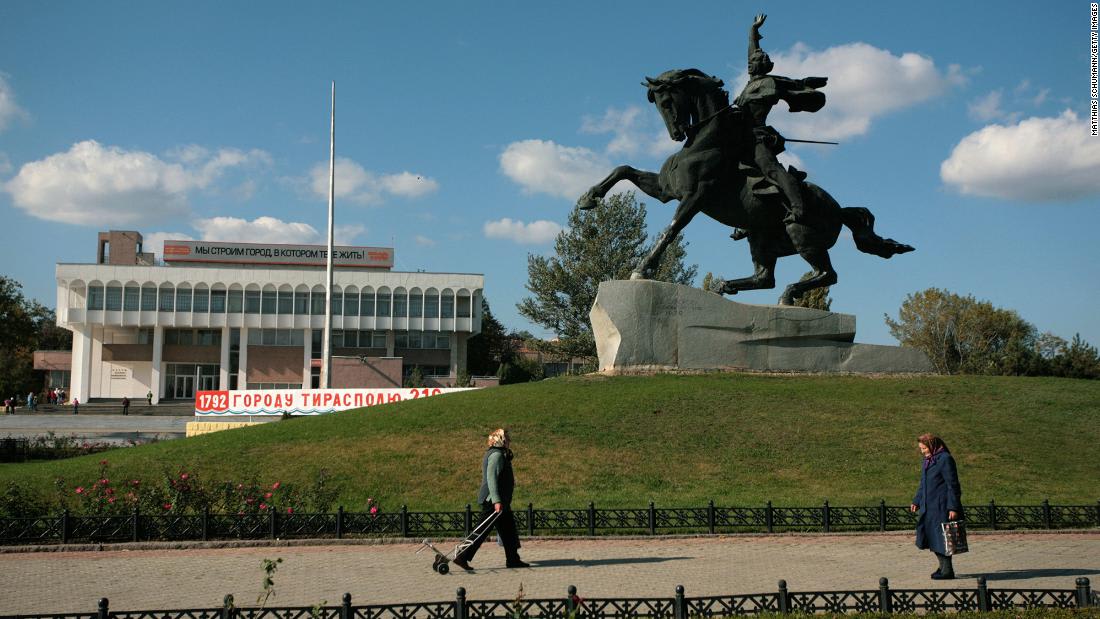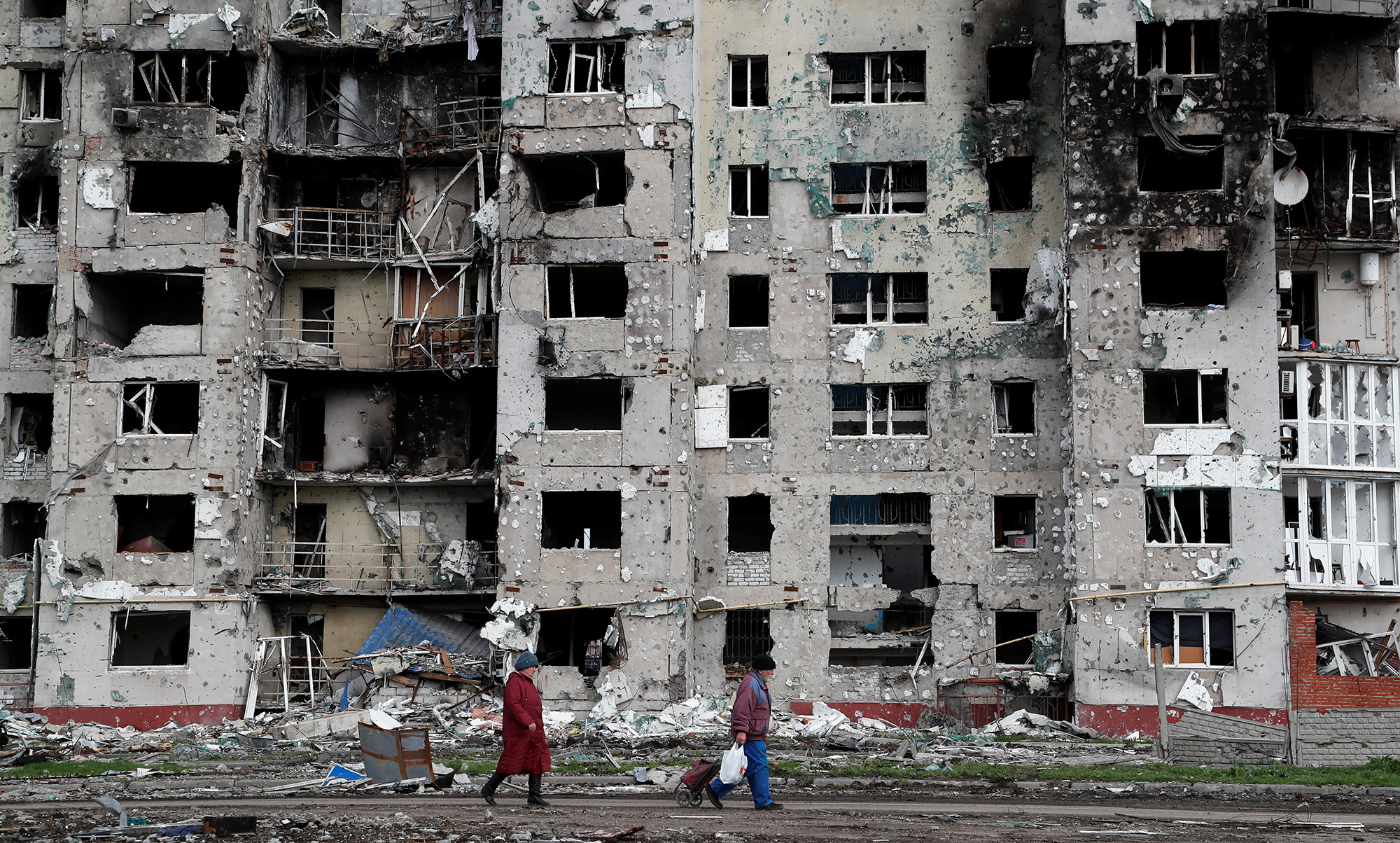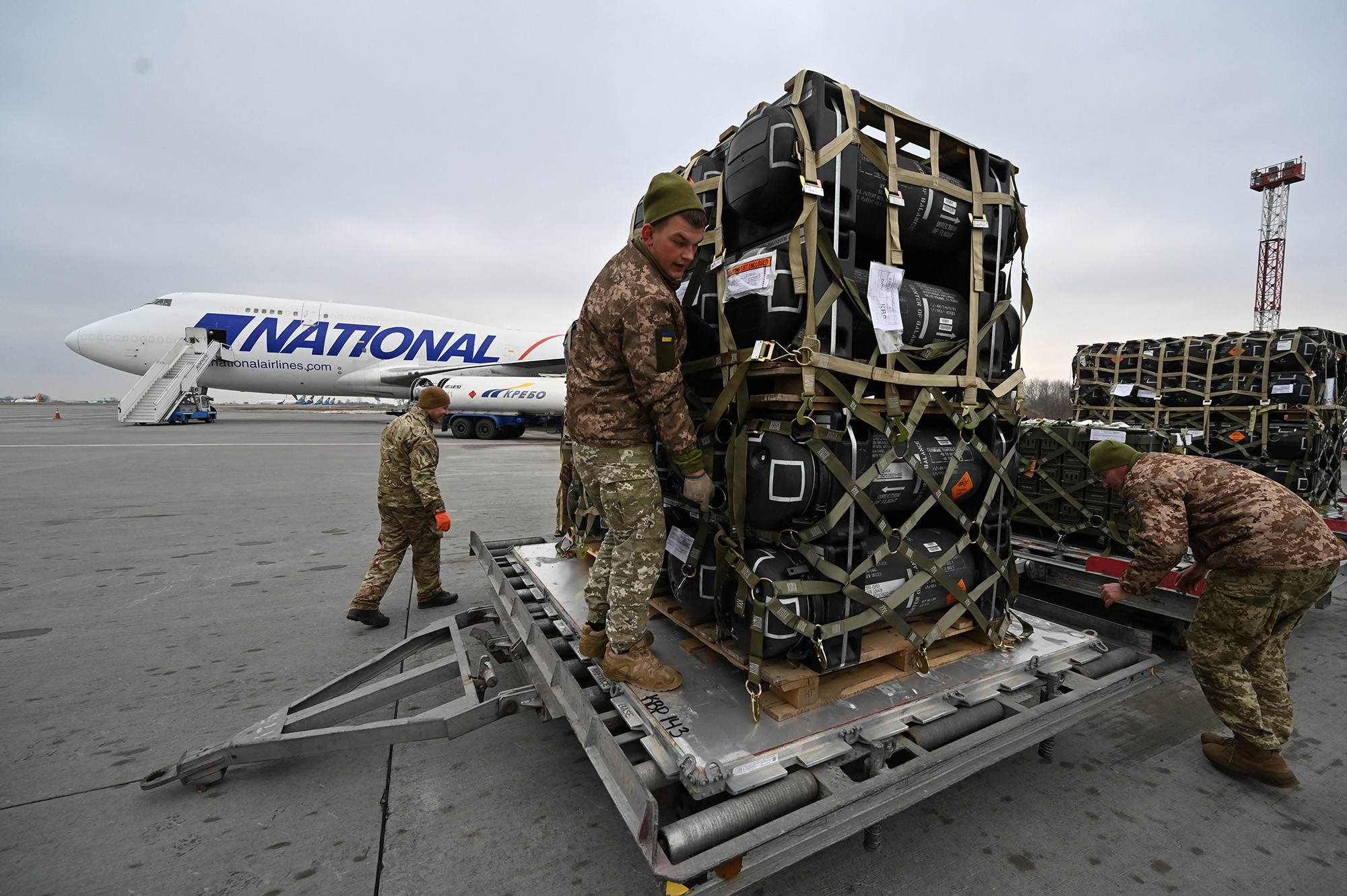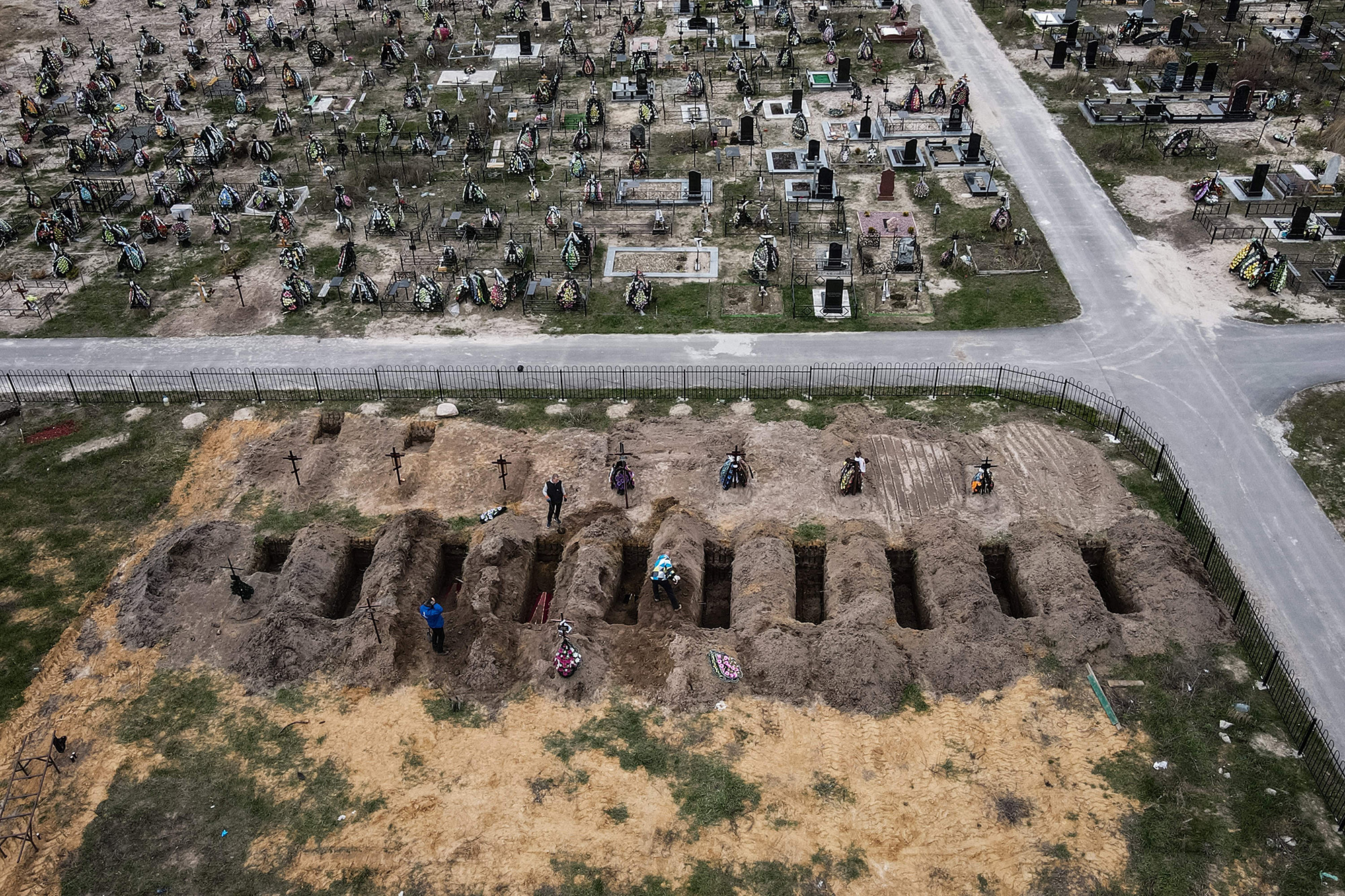
The bodies of 1,150 civilians have been recovered in Ukraine's Kyiv region since Russia's invasion started, Kyiv regional police chief Andriy Nebyton said Wednesday.
"As a result of the clearing operation and the work of detective groups in Kyiv Region, we have found and examined 1,150 bodies of civilian citizens who were killed and handed them over to medical forensics," Nebyton said in a video posted on his YouTube channel.
Nebyton emphasized that "these were civilians, not military, who had no involvement with Territorial Defense or other military entities."
The majority of casualties are from the Bucha region and Bucha leads in the number of bodies they have found, Nebyton said, adding that "50-70% died of firearm wounds, shot with automatic rifles."
Ukrainian President Volodymyr Zelensky has blamed Russia for the killings and called on Moscow to stop committing "war crimes."
The Kremlin has denied any involvement in the mass killings while reiterating baseless claims that the images of civilian bodies on the streets of Bucha are fake.
During a visit to the towns of Bucha and Borodianka, International Criminal Court (ICC) Chief Prosecutor Karim Khan said there were "reasonable grounds to believe that crimes within the jurisdiction of the ICC are being committed."
Ukraine's General Prosecutor Iryna Venediktova said a number of Russian soldiers allegedly involved in human rights abuses in Bucha have been identified. In a Facebook post, Venediktova said 10 soldiers had been identified as being "involved in torture of peaceful civilians" during their occupation of the town.
Irina Morgan contributed to this post.
